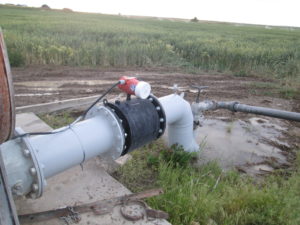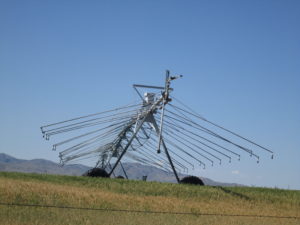Abstract
Governance, fairness and adaptive capacity in groundwater restrictions in the Eastern Snake River Plain.


The Project
Climate change, urbanization, and other socio-environmental forces are contributing to the frequency and severity of both droughts and floods in the American West. The future success of agriculture in the region depends on farmers’ ability to adapt to these changing conditions. This project examines farmer adaptation to mandatory groundwater cuts of up to 20% from the Eastern Snake River Plain Aquifer of Idaho. Using semi-structured interviews, quantitative surveys of farmers and water managers, and computational models of groundwater management, this project examines farmer adaptation to these reductions, leveraging natural variation in policies across groundwater management districts. Using a quantitative survey delivered to over 2000 water users in early 2018, we will ask:
- How are farmers impacted by these irrigation restrictions?
- How do farmers adapt to these changes and what factors drive their decision making?
- How do irrigation restrictions and associated adaptations reshape the agricultural landscape of southern Idaho?
This research promises to inform future water governance in the American West, where conflict between groundwater and surface water users is increasingly common.
The Team
Vicken Hillis, Boise State University
Jodi Brandt, Boise State University
Other Collaborators:
Meg du Bray, Idaho State University
Morey Burnham, Idaho State University
Katrina Running, Idaho State University
Funding Sources
